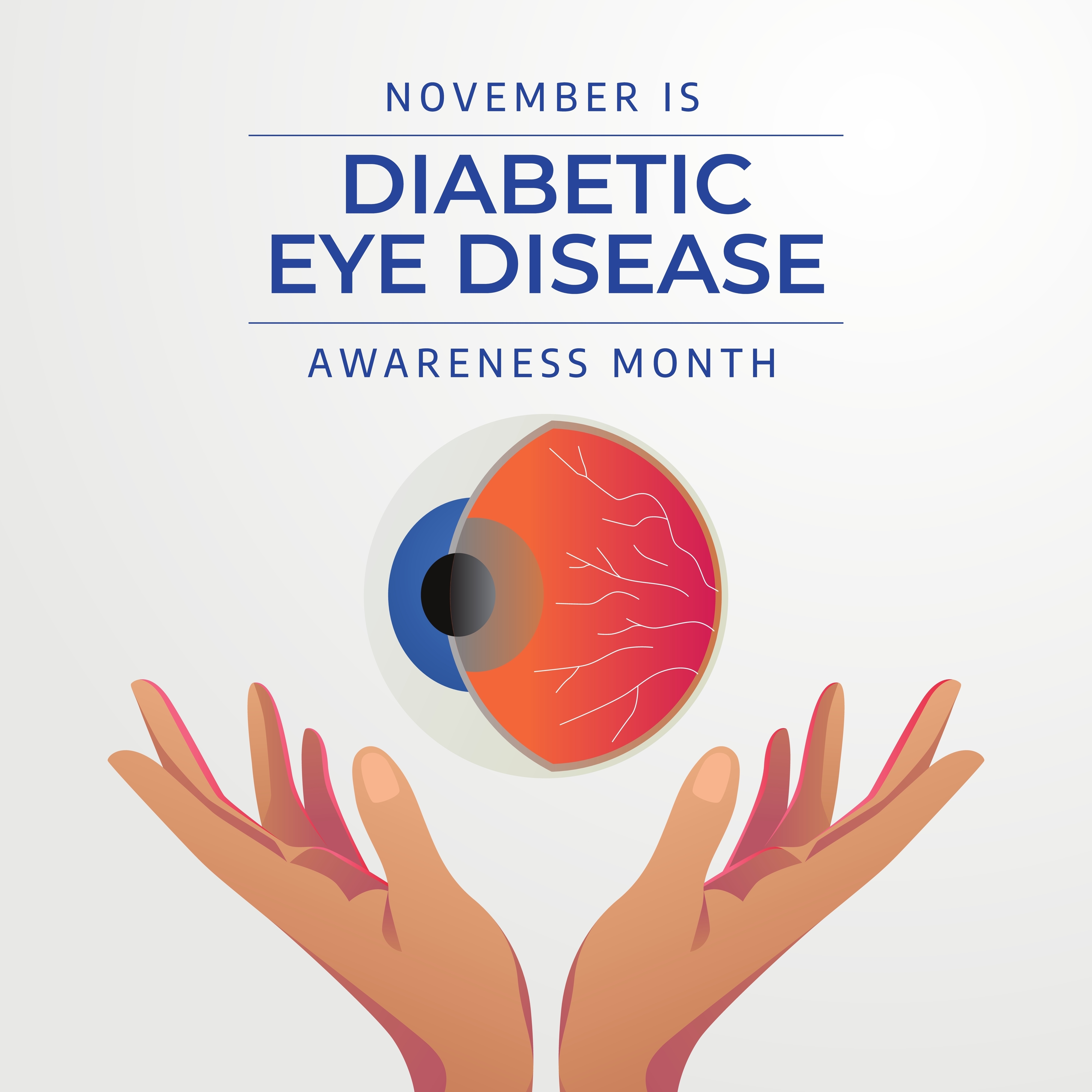
As we step into November, we also observe Diabetic Eye Disease Awareness Month, an important time to shine a light on the impact of diabetes on eye health. With diabetes affecting millions of people worldwide, awareness and education are crucial in preventing complications, including diabetic eye diseases such as diabetic retinopathy, diabetic macular edema, and cataracts.
Understanding Diabetic Eye Disease
Diabetic eye disease refers to a group of eye conditions that can affect people with diabetes. High blood sugar levels can damage the blood vessels in the retina, leading to vision problems. Here are the primary conditions associated with diabetic eye disease:
1. Diabetic Retinopathy: This is the most common diabetic eye condition. It occurs when the blood vessels in the retina swell, leak, or become blocked. In its early stages, it may not cause any symptoms, making regular eye exams essential.
2. Diabetic Macular Edema: This condition often occurs as a progression of diabetic retinopathy, where fluid leaks into the macula, the part of the retina responsible for sharp, central vision, leading to blurred or distorted vision.
3. Cataracts: People with diabetes are at a higher risk of developing cataracts, which cloud the eye's lens and can lead to vision impairment.
4. Glaucoma: Diabetes increases the risk of glaucoma, a condition that damages the optic nerve and can result in vision loss.
The Importance of Regular Eye Exams
For individuals with diabetes, regular comprehensive eye exams are crucial. Early detection and treatment can help prevent severe vision loss. The American Academy of Ophthalmology recommends that people with diabetes have their first eye exam within five years of diagnosis and then annually thereafter.
Tips for Maintaining Eye Health
Here are some tips to help maintain your eye health if you have diabetes:
- Control Blood Sugar Levels: Keeping blood sugar levels within the target range can significantly reduce the risk of eye complications.
- Healthy Lifestyle Choices: A balanced diet rich in fruits, vegetables, and whole grains, along with regular physical activity, can improve overall health and help manage diabetes.
- Quit Smoking: If you smoke, seek help to quit. Smoking increases the risk of diabetic eye disease and other serious health issues.
- Monitor Blood Pressure and Cholesterol: Keeping these levels in check can further reduce the risk of diabetic eye complications.
Get Involved
This November, we encourage you to take part in raising awareness about diabetic eye disease. Share information with friends and family, and encourage anyone with diabetes to schedule their eye exam.
At Optic Gallery, we are committed to providing comprehensive eye care and support for our patients. If you or someone you know is living with diabetes, please don’t hesitate to contact us to schedule an eye exam. Together, we can work towards preserving vision and promoting eye health.
Stay healthy and keep your eyes sharp!
- Optic Gallery Horizon Ridge








